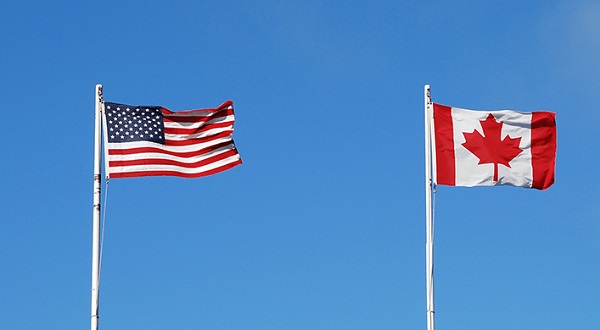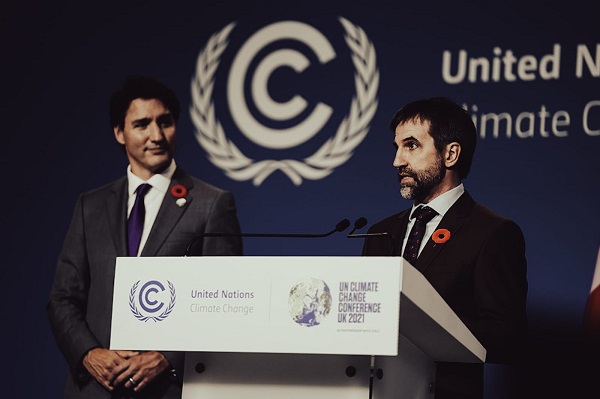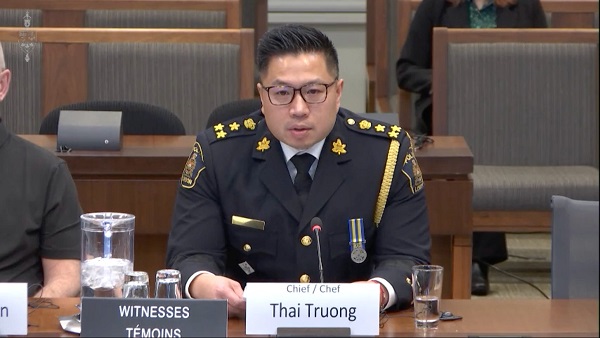Dan McTeague
COP29 was a waste of time
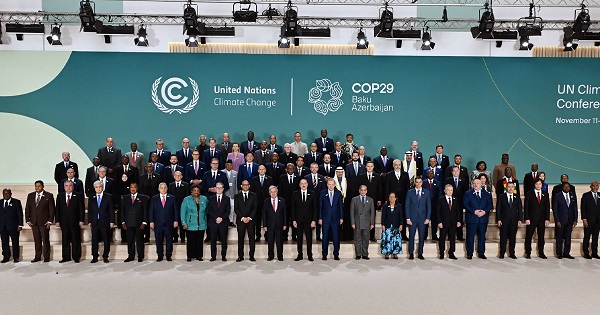
From Canadians For Affordable Energy

The twenty-ninth edition of the U.N. Climate Change Committee’s annual “Conference of the Parties,” also known as COP29, wrapped up recently, and I must say, it seemed a much gloomier affair than the previous twenty-eight. It’s hard to imagine a more downcast gathering of elitists and activists. You almost felt sorry for them.
Oh, there was all the usual nutty Net-Zero-by-2050 proposals, which would make life harder and more expensive in developed countries, and be absolutely disastrous for developing countries, if they were even partially implemented. But a lot of the roughly 65,000 attendees seemed to realize they were just spewing hot air.
Why were they so down? It couldn’t be that they were feeling guilty about their own hypocrisy, since they had flown in, many aboard private jets, to the Middle Eastern petrostate of Azerbaijan, where fossil fuels count for two-thirds of national GDP and 90% of export revenues, to lecture the world on the evils of flying in planes and prospering from the extraction of oil and natural gas. Afterall, they did the same last year in Dubai and there was no noticeable pang of guilt there.
It’s likely that Donald Trump’s recent reelection had a lot to do with it. Living as they do in a media bubble, our governing class was completely blindsided by the American people’s decision to return their 45th president to the White House. And the fact that he won the popular vote this time made it harder to deny his legitimacy. (Note that they’ve never questioned the legitimacy of Justin Trudeau, even though his party has lost the popular vote in the past two federal elections. What’s the saying about the modern Left? “If they didn’t have double standards, they’d have no standards at all.”)
Come January, Trump is committed to (once again) pulling the U.S. out of the Paris Climate Accords, to rolling back the Biden Administration’s anti-fracking and pro-EV regulations, and to giving oil companies the green light to extract as much “liquid gold” (his phrase) as possible, with an eye towards making energy more affordable for American consumers and businesses alike. The chance that they’ll be able to leech billions in taxpayer dollars from the U.S. Treasury while he’s running the show is basically zero.
But it wasn’t just the return of Trump which has gotten the climate brigade down. After a few years on top, environmentalists have been having one setback after another. Green parties saw a huge drop off in support in the E.U. parliament’s elections this past June, losing one-third of their seats in Brussels.
And wherever they’ve actually been in government, in Germany and Ireland for instance, the Greens have dragged down the popularity of the coalitions they were part of. That’s largely because their policies have been like an arrow to the heart of those nations’ economies – see the former industrial titan Germany, where major companies like Volkswagen, Siemens, and the chemical giant BASF are frantically shifting production to China and the U.S. to escape high energy costs.
But while voters around the world are kicking climate ideologues to the curb, there are still a few places where they’re managing to cling to power for dear life.
Here in Canada, for instance, Justin Trudeau and Steven Guilbeault steadfastly refuse to consider revisiting their ruinous Net Zero policies, from their ever-increasing Carbon Tax, to their huge investments in Electric Vehicles and the mandates which will force all of us to buy pricey, unreliable EVs in just over a decade, and to the emissions caps which seek to strangle the natural resource sector on which our economy depends.
Minister Guilbeault was all-in on COP29, heading the Canadian delegation, which “hosted 65 events showcasing Canada’s leadership on climate action, nature-based solutions, sustainable finance, and Canadian clean technologies—while discussing gender equality, youth perspectives, and the critical role of Indigenous knowledge and climate leadership” and stood up for Canadian values such as “2SLGBTQI+” and “gender inclusivity.” Once again, in Azerbaijan, which has been denounced for its human rights abuses.
And no word yet on the cost of all of this – for last year’s COP28 the government – or should I say the taxpayers – spent $1.4M on travel and accommodations alone for the 633 member delegation. That number, not counting the above mentioned events, are sure to be higher, as Azerbaijan is much less of a travel destination than Dubai, and so has fewer flights in and available hotel rooms.
At the same time all of this was going on, Trudeau was 12,000 kms away in Rio de Janeiro, Brazil, telling an audience that carbon taxation is a “moral obligation” which is more important than the cost of living: “It’s really, really easy when you’re in a short-term survive, [to say] I gotta be able to pay the rent this month, I’ve gotta be able to buy groceries for my kids, to say, OK, let’s put climate change as a slightly lower priority.”
This is madness, and it underscores how tone-deaf the prime minister is, and also why current polling looks so good for the Conservatives that Pierre Poilievre might as well start measuring the drapes at the PMO.
He has the Trudeau Liberals’ obsessive pursuit of Net Zero policies in large part to thank for that.
The world is waking up to the true cost of the Net Zero ideology, and leaving it behind. That doesn’t mean the fight is over – the activists and their allies in government are going to squeeze as many tax dollars out of this as they possibly can. But the writing is on the wall, and their window is rapidly closing.
Dan McTeague is President of Canadians for Affordable Energy.
Automotive
Bad ideology makes Canada’s EV investment a bad idea
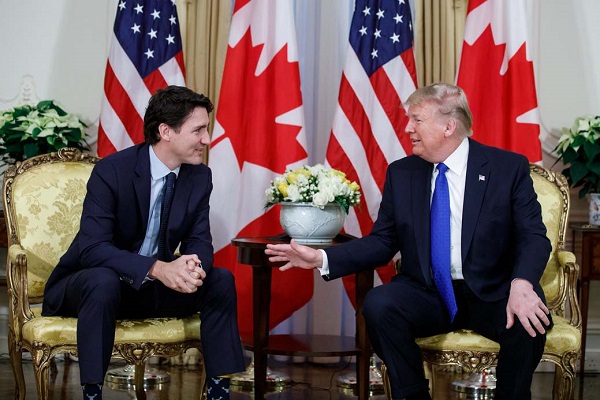

It doesn’t bode well for our country that our economic security rests on tariff exceptions to be negotiated by Liberal politicians who have spent the majority of Trump’s public life calling him a “threat to liberal democracy” and his supporters racists and fascists. Their hostility doesn’t lend itself to fruitful diplomacy. In any event, Trump’s EV rollback and aggressive tariffs will spell disaster for the Canadian EV sector.
What does Donald Trump’s resounding win in the recent U.S. election mean for Canada? Unfortunately, there doesn’t seem to have been much thought about the answer to this question in Ottawa, because the vast majority of our political and pundit class expected his opponent to be victorious. Suddenly they’re all having to process this unwelcome intrusion of reality into their narrow mental picture.
Well, what does it mean?
It is early days, and it will take some time to sift through the various policy commitments of the incoming Trump Administration to unpack the Canadian angle. But one thing we do know is that a Trump presidency will be no friend to the electric vehicle industry.
A Harris administration would have been. But, Trump spent much of his campaign slamming EV subsidies and mandates, pledging at the Republican National Convention in July that he will “end the electric vehicle mandate on day one.”
This line was so effective, especially in must-win Michigan, with its hundreds of thousands of autoworkers, that Kamala Harris was forced to assure everyone who listened that the U.S. has no EV mandate, and that she has no intention of introducing one.
Of course, this wasn’t strictly true.
First, the Biden Administration, of which Harris was a part, issued an Executive Order with the explicit goal of a “50% Electric Vehicle Sales Share” by 2030. The Biden-Harris Administration (to use their own formulation) instructed their Environmental Protection Agency (EPA) to introduce increasingly stringent tailpipe emission regulations on cars and light trucks with an eye towards pushing automakers to manufacture and sell more electric and hybrid vehicles.
Their EPA also issued a waiver which allows California to enact auto emissions regulations that are tougher than the federal government’s, which functions as a kind of back-door EV mandate nationally. After all, auto companies aren’t going to manufacture one set of vehicles for California, the most populous state, and another for the rest of the country.
And as for intentions, though the Harris camp consistently held that her prior policy positions shouldn’t be held against her, it’s hard to forget that as senator she’d co-sponsored the Zero-Emission Vehicles Act, which would have mandated that all new vehicles sold in the U.S. be “zero emission” by 2040. During her failed 2020 presidential campaign, Harris accelerated that proposed timeline, saying that the auto market should be all-electric by 2035.
In other words, she seemed pretty fond of the EV policies which Justin Trudeau and Steven Guilbeault have foisted upon Canada.
For Trump, all of these policies can be filed under “green new scam” climate policies, which stifle American resource development and endanger national prosperity. Now that he’s retaken the White House, it is expected that he will issue his own executive orders to the EPA, rescinding Biden’s tailpipe instructions and scrapping their waiver for California. And though he will be hindered somewhat by Congress, he’s likely to do everything in his power to roll back the EV subsidies contained in the (terribly named) Inflation Reduction Act and lobby for changes limiting which EVs qualify for tax credits, and how much.
All of this will be devastating for the EV industry, which is utterly reliant on the carrots and sticks of subsidies and mandates. And it’s particularly bad news for the Trudeau government (and Doug Ford’s government in Ontario), which have gone all-in on EVs, investing billions of taxpayer dollars to convince automakers to build their EVs and batteries here.
Remember that “vehicles are the second largest Canadian export by value, at $51 billion in 2023 of which 93% was exported to the U.S.,” according to the Canadian Vehicle Manufacturers Association, and “Auto is Ontario’s top export at 28.9% of all exports (2023).”
Canada’s EV subsidies were pitched as an “investment” in an evolving auto market, but that assumes that those pre-existing lines of trade will remain essentially unchanged. If American EV demand collapses, or significantly contracts without mandates or tax incentives, we’ll be up the river without a paddle.
And that will be true, even if the U.S. EV market proves more resilient than I expect it to. That is because of Trump’s commitment to “Making America Great Again” by boosting American manufacturing and the jobs it provides. He campaigned on a blanket tariff of 10 percent on all foreign imports, with no exceptions mentioned. This would have a massive impact on Canada, since the U.S. is our largest trading partner.
Though Justin Trudeau and Chrystia Freeland have been saying to everyone who will listen how excited they are to work with the Trump Administration again, and “Canada will be fine,” it doesn’t bode well for our country that our economic security rests on tariff exceptions to be negotiated by Liberal politicians who have spent the majority of Trump’s public life calling him a “threat to liberal democracy” and his supporters racists and fascists. Their hostility doesn’t lend itself to fruitful diplomacy.
In any event, Trump’s EV rollback and aggressive tariffs will spell disaster for the Canadian EV sector.
The optimism that existed under the Biden administration that Canada could significantly increase its export capacity to the USA is going down the drain. The hope that “Canada could reestablish its export sector as a key driver of growth by positioning itself as a leader in electric vehicle and battery manufacturing, along with other areas in cleantech,” in the words of an RBC report, is swiftly fading. It seems more likely now that Canada will be left holding the bag on a dying industry in which we’re invested heavily.
The Trudeau Liberals’ aggressive push, driven by ideology and not market forces, to force Electric Vehicles on everyone is already backfiring on the Canadian taxpayer. Pierre Poilievre must take note — EV mandates and subsidies are bad for our country, and as Trump has demonstrated, they’re not a winning policy. He should act accordingly.
Dan McTeague
“Axe the Tax” is just the beginning
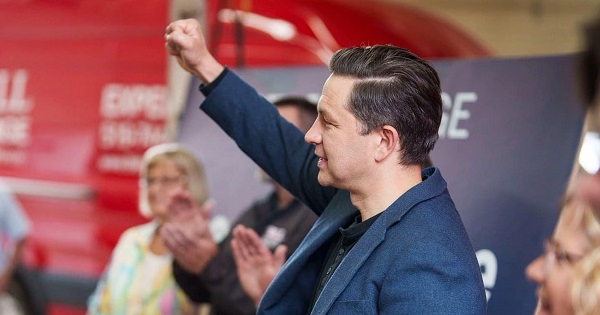
From Canadians for Affordable Energy

All across Canada preemptive obituaries are being written for the Carbon Tax. (I’ve written one myself.) And for good reason. The closer we get to the full implementation of Justin Trudeau’s carbon tax, the harder regular people are being hit in the wallet. The tax has helped make it more expensive to feed and clothe our families, to heat our homes, and to gas up our cars. It has been a direct assault on the Canadian standard of living.
The fact that the Trudeau Liberals are behind the Carbon Tax is central to their collapsing poll numbers. And Conservative leader Pierre Poilievre has capitalized on its unpopularity by pledging to “Axe the Tax” every chance he gets. Chances are that pledge will carry his party into the majority, whenever we get around to having an election.
That said, we must be careful because the Carbon Tax is just one part of Trudeau’s Net-Zero program. It would be a catastrophic blunder for the Conservatives, upon entering government, to repeal only the Carbon Tax and leave the rest of the Liberals’ green agenda in place. Doing so would jeopardize Poilievre’s ability to make life in Canada more affordable.
There are a whole raft of policies on this file which a Poilievre government should quickly repeal. Here are a few which ought to be at the top of the list:
Clean Fuel Regulations (CFR)
Trudeau’s Clean Fuel Regulations (CFR), which I’ve nicknamed the Second Carbon Tax, are designed to reduce the carbon intensity of fuels like gasoline and diesel by blending increased amounts of ethanol into those fuels, making them less efficient while potentially contributing to engine corrosion and other problems. Plus, it’s estimated that the CFR will raise gasoline prices between six and seventeen cents a litre by 2030. Which is to say, we’ll be paying more for fuel and getting less out of it.
And, like the original Carbon Tax, the cost of the CFR is felt beyond the pumps, with estimates suggesting it will increase household energy costs by between 2.2 and 6.5 percent a year, while also significantly constricting the growth of our economy. These regulations ought to be scrapped entirely.
Emissions Caps
As I’ve written elsewhere, the Trudeau government’s proposed Emissions Cap, which targets our nation’s oil and gas sector, “would make Canada the only country in the world which willingly and purposefully stifles its single largest revenue stream.” Oil and gas is our “golden goose,” according to a study by Jack Mintz and Philip Cross, but the Trudeau government is proposing a cap on that sector’s carbon emissions, which a recent Deloitte report found “would lead to a 10% decrease in Alberta’s oil production and a 16% decrease in conventional natural gas production.” That translates to an estimated decline of real GDP in Alberta of $191 billion, and of $91 billion in the rest of Canada.
This is madness, and that’s before we even touch on the fact that it will have no discernable impact on global carbon emissions. It merely ensures that the world’s energy needs will be met by less environmentally responsible nations like Russia, Venezuela, Saudi Arabia, and Iran.
Electric Vehicle Mandates and Subsidies
Among the most reckless policies enacted by this government is Trudeau’s Electric Vehicle (EV) mandate, which bans the sale of new gas-and-diesel driven cars and trucks by 2035. I’ll say that again – in just under a decade, every new car and truck sold in Canada will have to be electric! This despite the fact that electric vehicles are notoriously bad at holding their charge in cold weather, one of our country’s trademarks.
And that’s assuming you can find a place to charge them. Natural Resources Canada estimates that we will need roughly 450,000 public charging stations by 2035 to make this EV transition at all realistic. At the moment we have about 28,000.
Plus, the wholesale adoption of EVs across Canada would put a tremendous strain on our electrical grid, especially at a time when the environmentalists have been pushing for a nationwide transition to less reliable methods of generating electricity, like wind and solar.
And then there’s the billions in subsidies which support the mandate. Federal and provincial taxpayer dollars are being thrown at automotive companies to underwrite their producing a product which taxpayers will then be forced to buy. It’s an outrageous example of double dipping.
Poilievre seems to understand this. He has called the EV mandate “a tax on the poor,” because of the elevated cost of an EV, compared to traditional vehicles, and he’s slammed the subsidies as bad deals for Canada.
Even so, when Trudeau has accused Poilievre of wanting to cancel the subsidies, Poilievre has tended to pivot to discussing the “generational” opportunity Canada has to start producing the minerals necessary for EV batteries, if only the Liberals would speed up the approval process for new mines.
That’s all well and good, except that the entire EV industry is built on subsidies and mandates. And even with those, countries around the world are finding that demand for EVs is much softer than anticipated. Some “generational” opportunity for Canada, to become a key link in the supply chain for a product that no one wants! Much better to change course, scrap the mandates and subsidies, and see if the industry can stand on its own two feet. Once consumers have shown that they’re willing to buy EVs, then we can talk.
And Many More…
Of course, repealing these policies is just scratching the surface. I could easily have written about the problems with Bill C-69, the so-called “no new pipelines bill;” Bill C-48, the Oil Tanker Moratorium Act which significantly reduces Canada’s ability to export our natural resources; or Bill C-59, which bans businesses from touting the environmental positives of their work if it doesn’t meet a government-approved standard.
The fact of the matter is, Canadians need a government that will not just pull down the low-hanging fruit of the Carbon Tax, but to “axe” the numerous Net-Zero policies, enacted by Trudeau’s and his environmentalist allies over the past nine years, which are making all of our lives more expensive.
Pierre Poilievre has his work cut out for him. Let’s all hope that he turns out to be the man we need him to be. We can’t afford anything less.
Dan McTeague is President of Canadians for Affordable Energy.
-

 Christopher Rufo2 days ago
Christopher Rufo2 days agoAmerica’s Verdict
-
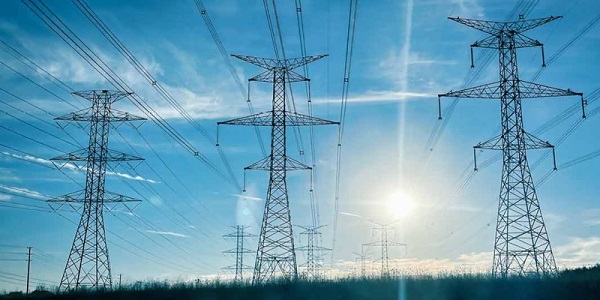
 Alberta1 day ago
Alberta1 day agoProvince “rewiring” Alberta’s electricity grid for growth
-

 International2 days ago
International2 days agoRussiagate Remnants
-

 COVID-192 days ago
COVID-192 days agoIs FDA ‘covering for Pfizer’? Court orders agency to release a million more pages of COVID vaccines documents
-
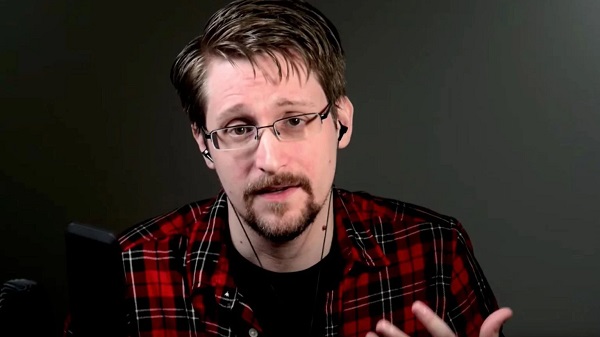
 Censorship Industrial Complex1 day ago
Censorship Industrial Complex1 day agoWill Trump’s Second Chance Bring Justice for Edward Snowden?
-

 National1 day ago
National1 day agoCanadian mayor has bank account garnished after standing up to LGBT activists
-
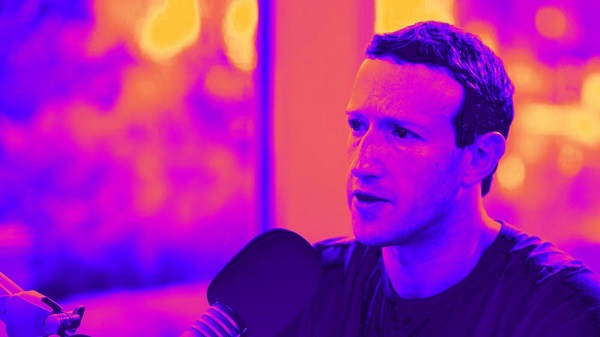
 Censorship Industrial Complex1 day ago
Censorship Industrial Complex1 day agoMeta’s Re-Education Era Begins
-
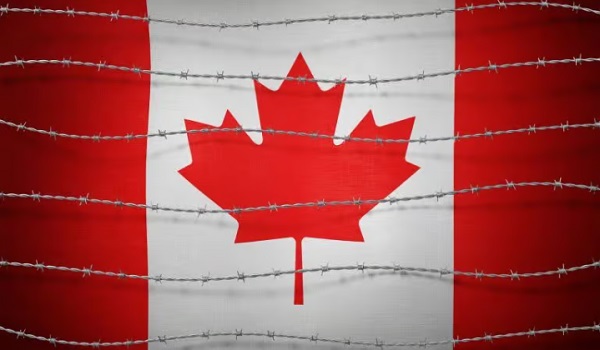
 Brownstone Institute1 day ago
Brownstone Institute1 day agoFreedumb, You Say?


